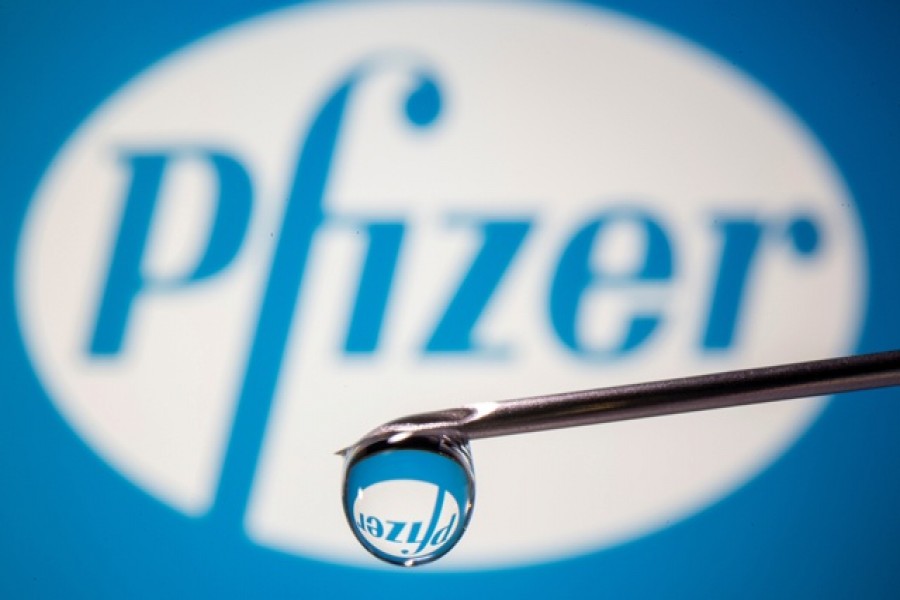The delay is another blow to the EU, which has also been hit by delays in deliveries from Anglo-Swedish drugmaker AstraZeneca and US company Moderna, and had also faced earlier delays on the Pfizer vaccine.
It also raises questions about the rationale of an EU vaccine export control scheme which was set up in late January to ensure timely deliveries but has not yet been activated, despite the supply shortfalls.
By the middle of last week, Pfizer had delivered to the EU 23 million doses of the COVID-19 vaccine it developed with German firm BioNTech, said an EU official who is directly involved in talks with the US company.
That was about 10 million doses less than Pfizer had promised to supplied by mid-February, said a second official who is also involved in the talks.
Pfizer declined to comment, saying schedules of its deliveries were confidential. The executive European Commission did not respond to a request for comment on delivery shortfalls.
EU officials have said Pfizer committed to delivering 3.5 million doses a week from the start of January, for a total of 21 million shots by mid-February.
In mid-January, there was a temporary hiccup in supplies which EU officials say was largely resolved last month. But a lot of doses that were due to arrive in December are still missing, the two EU officials said.
The Pfizer/BioNTech vaccine was approved for use in the EU on Dec 21. The following day, BioNTech said the companies would ship to the EU 12.5 million doses by the end of the month.
Only about 2 million of those doses due in December have been delivered, according to Reuters calculations.
The shortfall would amount to about 30 per cent of the total supplies pledged for the period from December until mid-February.
One EU official said the company had committed to delivering the missing doses by the end of March.
The EU has two contracts with Pfizer for the supply of 600 million vaccine doses.
TRADE FLOWS
Although the EU’s own supplies have fallen short, the European Commission has approved all requests for export of COVID-19 vaccines - mostly from Pfizer/BioNTech - since it set up its mechanism to monitor flows.
In the period between Jan. 30 and Feb. 16, the EU gave the green light to 57 requests for vaccine export to 24 countries, including Britain and the United Arab Emirates (UAE), a Commission spokeswoman said on Wednesday.
Before the monitoring scheme was set up, the bloc had already exported millions of vaccines to Israel, Britain and Canada among others, mostly Pfizer’s, according to customs data cited in a EU document seen by Reuters.
Israel has injected the first vaccine dose to more than 75 per cent of its population, figures from University of Oxford-based Our World in Data show. The figure for the UAE is around 50 per cent and for Britain it is above 20 per cent.
EU countries on average have vaccinated only about 5 per cent of their populations, according to Our World in Data.
Countries with a high number of inoculations are already vaccinating people who are not among the most vulnerable, while those most in need elsewhere have not yet had a shot.
The World Health Organization has set the target of inoculating 20 per cent of poor countries’ population by the end of the year.
In the period between Jan 30 and Feb 16, the EU gave the green light to 57 requests for vaccine export to 24 countries, including Britain and the United Arab Emirates (UAE), a Commission spokeswoman said on Wednesday.
Before the monitoring scheme was set up, the bloc had already exported millions of vaccines to Israel, Britain and Canada among others, mostly Pfizer’s, according to customs data cited in an EU document seen by Reuters.
Israel has injected the first vaccine dose to more than 75 per cent of its population, figures from University of Oxford-based Our World in Data show. The figure for the UAE is around 50 per cent and for Britain it is above 20 per cent.
EU countries on average have vaccinated only about 5.0 per cent of their populations, according to Our World in Data.
Countries with a high number of inoculations are already vaccinating people who are not among the most vulnerable, while those most in need elsewhere have not yet had a shot.
The World Health Organization has set the target of inoculating 20 per cent of poor countries’ population by the end of the year.


